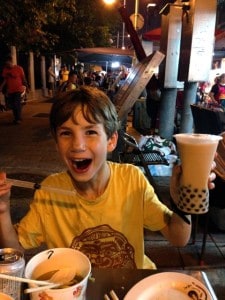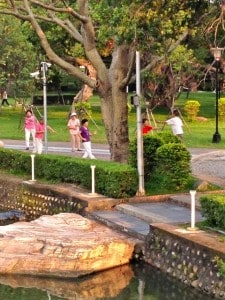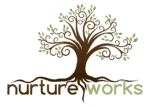Taiwan – land of Qigong and Bubble Tea

 I spent the whole of this summer with my family in Taiwan. My husband and I lived for 10 years in China in the 1990s and I spent several months in Taiwan before that as part of my Chinese studies. So this trip was partly a walk down memory lane, as well as a chance to give our children a different take on a country with Chinese language and culture.
I spent the whole of this summer with my family in Taiwan. My husband and I lived for 10 years in China in the 1990s and I spent several months in Taiwan before that as part of my Chinese studies. So this trip was partly a walk down memory lane, as well as a chance to give our children a different take on a country with Chinese language and culture.
We spent many evenings exploring the wonders of Taiwan’s vibrant Night Markets and their extraordinarily creative street food – from delicious Bubble Tea (which, we are amazed to discover on returning home, has already reached the UK) to spring onion and basil pancakes, from oyster-packed omelettes to pop-in-you-mouth crunchy fried soft-shelled crabs, from big, juicy vegetable ‘baozi’ dumplings to scrumptious red (adzuki) bean everything, like red-bean porridge, gooey ‘Mochi’ glutinous rice cakes and ice-cream.
Many Taiwanese choose to eat in these big, bright, noisy, hot, sweaty markets every night, rather than stay cramped in their small and stuffy apartments. They’d probably be shut down in a minute in health-and-safety conscious UK, but I felt revitalised by the teeming earthiness that helps to keep city dwellers in touch with something essential even as economic development moves them towards a more sterile and disconnected life.
My early mornings were often spent in Taiwan’s parks, enjoying a very different local atmosphere that seemed to perfectly balance the full-on energy of the Night Markets. Just like in mainland China, the parks are full from dawn onwards of people enjoying the cooler early morning air to do their own thing, individually or in small or large groups. Some walk fast with their arms swinging energetically, while others move in a walking meditation one behind the other in pigeon steps as slowly as they possibly can with their arms flowing softly from one side to the other as they gently place their feet. Some brightly dressed groups practice their disco dance routines, others do yoga stretches or flowing Taiqi, but the vast majority are out there every day practicing Qigong.
How refreshing and nourishing it was to witness and share in these gentle outdoor early-morning self-care rituals in a country where people have maintained (more than I ever sensed in China) a strong connection to Chinese Daoist spiritual and medical traditions for maintaining health and harmony. Rapid economic development over the past 50 years has certainly put this under strain, but conversations with locals reveal that there is still a broad understanding of the kind of lifestyles and diets that destroy or promote well-being. For many, daily Qigong practice is a key part of that lifestyle.
That said, exploring the Qigong popular in Taiwan also brought home to me how lucky I am to practice MogaDao Qigong, for I saw nothing that came close to the tenderness and power of its beautiful archetypical forms.
If you’d like to bring MogaDao Qigong into your life, come along to one of my sessions in Cambridge – unfortunately the UK climate makes it hard to practice outside in nature every day, but we are out on Lammas Land when the weather permits.
For more information about my Qigong classes, click here.
Like this post? Sign up below for my regular newsletter to get more.
